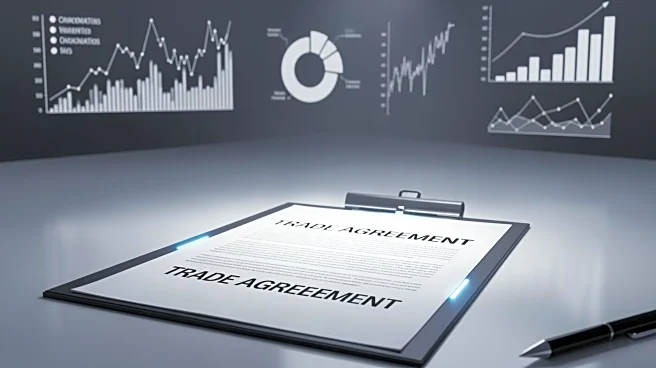What's Happening?
President Trump is set to visit Tokyo, where trade discussions will be a key agenda item. Trump's perception of Japan, shaped by its economic boom in the 1980s, continues to influence his tariff-led approach
to global trade. Despite Japan's current economic challenges, Trump maintains a view of Japan as a peer competitor, leading to the imposition of 15 percent tariffs on Japanese exports to the U.S. and a $550 billion investment agreement. Analysts suggest Trump's trade policies are rooted in outdated views, as Japan now faces issues like an aging population and stagnant growth.
Why It's Important?
Trump's tariff policies on Japan have significant implications for international trade relations and economic diplomacy. By imposing tariffs based on historical perceptions, Trump risks straining U.S.-Japan relations and potentially hindering economic cooperation. The tariffs could impact industries reliant on Japanese imports, affecting prices and supply chains. Additionally, Trump's approach may influence other trade negotiations, setting a precedent for how the U.S. engages with global economic partners.
What's Next?
As Trump arrives in Tokyo, discussions with Japan's Prime Minister Sanae Takaichi will focus on the U.S.-Japan trade agreement. The outcome of these talks could shape future economic policies and bilateral relations. Stakeholders, including businesses and trade experts, will closely monitor the negotiations for potential shifts in tariff policies. The visit may also prompt Japan to reassess its economic strategies and explore new avenues for growth and international collaboration.
Beyond the Headlines
Trump's tariff policies highlight the complexities of adapting historical economic perceptions to contemporary realities. The situation underscores the need for nuanced understanding in international trade, considering evolving economic landscapes and demographic shifts. It also raises questions about the role of personal biases in shaping national policy and the importance of informed decision-making in global economic leadership.










